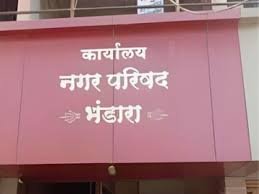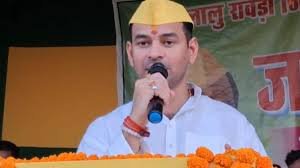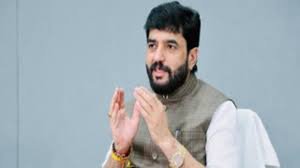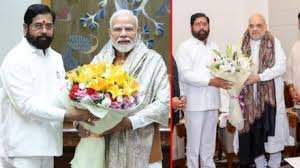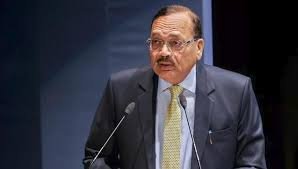
Justice to the last person: Revolutionary message in Supreme Court Justice Suryakant's Sri Lankan speech
New Delhi, October 26, 2025: Senior Supreme Court Justice Sanjay Kumar Suryakant has highlighted the fundamental principles of the judiciary in a speech he gave in Sri Lanka. His statement, even before the announcement of his appointment as the Chief Justice (CJI), has sparked a debate in the judicial sector. Saying, "Justice should reach the last person, first," he underlined the responsibility of the judiciary for the rights of the common man. This statement is not only a reflection of India's judicial system, but also expresses the expectation of equality of justice at the international level.
Justice Suryakant of the Supreme Court will take over as the Chief Justice in November 2025. The appointment will be made after the retirement of the current Chief Justice D. Y. Chandrachud, and Suryakant's approach to justice is a mark of his long judicial career. Speaking at the event in Sri Lanka, he discussed in detail the successful aspects of India's judiciary. The event was organized in Sri Lanka at an international law conference, where the judicial systems of Asian countries were discussed. Suryakant's speech was appreciated by the judges, lawyers and experts who participated in the conference.
India's approach to justice on the Sri Lankan stage
At the event held in Colombo, Sri Lanka, Justice Suryakant described India's judicial system based on constitutional values. "The judicial system in India is not limited to the High Courts only, it reaches to the village, to the last person. The real power of justice is seen only when it is equal and accessible to all," he said. This statement is particularly important in the context of the current political and economic crisis in Sri Lanka. The economic slowdown in Sri Lanka in the last few years has made it difficult for the common man to access justice, and at such a time, mentioning India's experiences is an inspiring step.
In his speech, Justice Suryakant mentioned some important judgments from India. For example, talking about the success of the 'Lok Adalat' scheme given by the Supreme Court, he said that lakhs of cases have been disposed of promptly through this scheme. Also, through the 'e-court' system and digital justice process, it has become easier for people in rural areas to get justice. "Justice should not be a luxury. It should be given to the last person in the queue first, so that inequality in the society will be reduced," he said emphatically. During this speech, the audience present applauded, which increased the scope of this statement.
Why is this message before the post of Chief Justice important?
Justice Suryakant's appointment as the Chief Justice is not just a formality, but a new chapter will begin in the judiciary of India. In his 30-year judicial career, he has given many important bench judgments. He started his service as a judge in the Punjab and Haryana High Court and later rose to the top in the Supreme Court. In particular, his judgments in cases related to environment, human rights and social justice are a symbol of equality of justice. This speech in Sri Lanka is a harbinger of this vision.
This statement has come into the limelight again after the announcement of the appointment for the post of Chief Justice. According to legal experts, under Suryakant's leadership, the Supreme Court will take a more proactive role for the rights of the common man. For example, the use of new technology will increase to reduce the number of pending cases and the judicial process will become more transparent. "This statement is not just words, but a concrete plan towards the judiciary," said senior lawyer and former Justice Uddhav Bhandare.
India's image at the international level
This speech given in Sri Lanka has created a positive image of India's judiciary. Sri Lankan government officials have welcomed this statement, and efforts are underway to increase judicial cooperation between the two countries. India has not only provided financial assistance to Sri Lanka, but also cooperated in the field of law. In Suryakant's speech, he also highlighted the judicial aspects of India-Sri Lanka relations. "As neighbors, we can learn from each other's judicial systems. Justice does not have the boundaries of nations," he said.
In the wake of this incident, there is also enthusiasm among law students in India. Seminars have been organized on this speech in many universities. Students at the National Law University in Delhi have called Suryakant's approach a 'judicial revolution'. Also, social activists and human rights organizations have supported this statement, which is being seen as a guide for reforms in the judicial system.
New Delhi, October 26, 2025: Senior Supreme Court Justice Sanjay Kumar Suryakant has highlighted the fundamental principles of the judiciary in a speech he gave in Sri Lanka. His statement, even before the announcement of his appointment as the Chief Justice (CJI), has sparked a debate in the judicial sector. Saying, "Justice should reach the last person, first," he underlined the responsibility of the judiciary for the rights of the common man. This statement is not only a reflection of India's judicial system, but also expresses the expectation of equality of justice at the international level.
Justice Suryakant of the Supreme Court will take over as the Chief Justice in November 2025. The appointment will be made after the retirement of the current Chief Justice D. Y. Chandrachud, and Suryakant's approach to justice is a mark of his long judicial career. Speaking at the event in Sri Lanka, he discussed in detail the successful aspects of India's judiciary. The event was organized in Sri Lanka at an international law conference, where the judicial systems of Asian countries were discussed. Suryakant's speech was appreciated by the judges, lawyers and experts who participated in the conference.
India's approach to justice on the Sri Lankan stage
At the event held in Colombo, Sri Lanka, Justice Suryakant described India's judicial system based on constitutional values. "The judicial system in India is not limited to the High Courts only, it reaches to the village, to the last person. The real power of justice is seen only when it is equal and accessible to all," he said. This statement is particularly important in the context of the current political and economic crisis in Sri Lanka. The economic slowdown in Sri Lanka in the last few years has made it difficult for the common man to access justice, and at such a time, mentioning India's experiences is an inspiring step.
In his speech, Justice Suryakant mentioned some important judgments from India. For example, talking about the success of the 'Lok Adalat' scheme given by the Supreme Court, he said that lakhs of cases have been disposed of promptly through this scheme. Also, through the 'e-court' system and digital justice process, it has become easier for people in rural areas to get justice. "Justice should not be a luxury. It should be given to the last person in the queue first, so that inequality in the society will be reduced," he said emphatically. During this speech, the audience present applauded, which increased the scope of this statement.
Why is this message before the post of Chief Justice important?
Justice Suryakant's appointment as the Chief Justice is not just a formality, but a new chapter will begin in the judiciary of India. In his 30-year judicial career, he has given many important bench judgments. He started his service as a judge in the Punjab and Haryana High Court and later rose to the top in the Supreme Court. In particular, his judgments in cases related to environment, human rights and social justice are a symbol of equality of justice. This speech in Sri Lanka is a harbinger of this vision.
This statement has come into the limelight again after the announcement of the appointment for the post of Chief Justice. According to legal experts, under Suryakant's leadership, the Supreme Court will take a more proactive role for the rights of the common man. For example, the use of new technology will increase to reduce the number of pending cases and the judicial process will become more transparent. "This statement is not just words, but a concrete plan towards the judiciary," said senior lawyer and former Justice Uddhav Bhandare.
India's image at the international level
This speech given in Sri Lanka has created a positive image of India's judiciary. Sri Lankan government officials have welcomed this statement, and efforts are underway to increase judicial cooperation between the two countries. India has not only provided financial assistance to Sri Lanka, but also cooperated in the field of law. In Suryakant's speech, he also highlighted the judicial aspects of India-Sri Lanka relations. "As neighbors, we can learn from each other's judicial systems. Justice does not have the boundaries of nations," he said.
In the wake of this incident, there is also enthusiasm among law students in India. Seminars have been organized on this speech in many universities. Students at the National Law University in Delhi have called Suryakant's approach a 'judicial revolution'. Also, social activists and human rights organizations have supported this statement, which is being seen as a guide for reforms in the judicial system.
Justice Suryakant of the Supreme Court will take over as the Chief Justice in November 2025. The appointment will be made after the retirement of the current Chief Justice D. Y. Chandrachud, and Suryakant's approach to justice is a mark of his long judicial career. Speaking at the event in Sri Lanka, he discussed in detail the successful aspects of India's judiciary. The event was organized in Sri Lanka at an international law conference, where the judicial systems of Asian countries were discussed. Suryakant's speech was appreciated by the judges, lawyers and experts who participated in the conference.
India's approach to justice on the Sri Lankan stage
At the event held in Colombo, Sri Lanka, Justice Suryakant described India's judicial system based on constitutional values. "The judicial system in India is not limited to the High Courts only, it reaches to the village, to the last person. The real power of justice is seen only when it is equal and accessible to all," he said. This statement is particularly important in the context of the current political and economic crisis in Sri Lanka. The economic slowdown in Sri Lanka in the last few years has made it difficult for the common man to access justice, and at such a time, mentioning India's experiences is an inspiring step.
In his speech, Justice Suryakant mentioned some important judgments from India. For example, talking about the success of the 'Lok Adalat' scheme given by the Supreme Court, he said that lakhs of cases have been disposed of promptly through this scheme. Also, through the 'e-court' system and digital justice process, it has become easier for people in rural areas to get justice. "Justice should not be a luxury. It should be given to the last person in the queue first, so that inequality in the society will be reduced," he said emphatically. During this speech, the audience present applauded, which increased the scope of this statement.
Why is this message before the post of Chief Justice important?
Justice Suryakant's appointment as the Chief Justice is not just a formality, but a new chapter will begin in the judiciary of India. In his 30-year judicial career, he has given many important bench judgments. He started his service as a judge in the Punjab and Haryana High Court and later rose to the top in the Supreme Court. In particular, his judgments in cases related to environment, human rights and social justice are a symbol of equality of justice. This speech in Sri Lanka is a harbinger of this vision.
This statement has come into the limelight again after the announcement of the appointment for the post of Chief Justice. According to legal experts, under Suryakant's leadership, the Supreme Court will take a more proactive role for the rights of the common man. For example, the use of new technology will increase to reduce the number of pending cases and the judicial process will become more transparent. "This statement is not just words, but a concrete plan towards the judiciary," said senior lawyer and former Justice Uddhav Bhandare.
India's image at the international level
This speech given in Sri Lanka has created a positive image of India's judiciary. Sri Lankan government officials have welcomed this statement, and efforts are underway to increase judicial cooperation between the two countries. India has not only provided financial assistance to Sri Lanka, but also cooperated in the field of law. In Suryakant's speech, he also highlighted the judicial aspects of India-Sri Lanka relations. "As neighbors, we can learn from each other's judicial systems. Justice does not have the boundaries of nations," he said.
In the wake of this incident, there is also enthusiasm among law students in India. Seminars have been organized on this speech in many universities. Students at the National Law University in Delhi have called Suryakant's approach a 'judicial revolution'. Also, social activists and human rights organizations have supported this statement, which is being seen as a guide for reforms in the judicial system.

.jpg)







